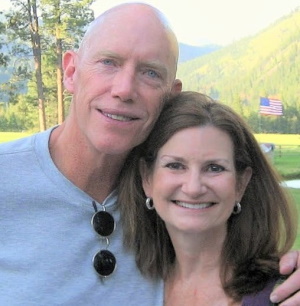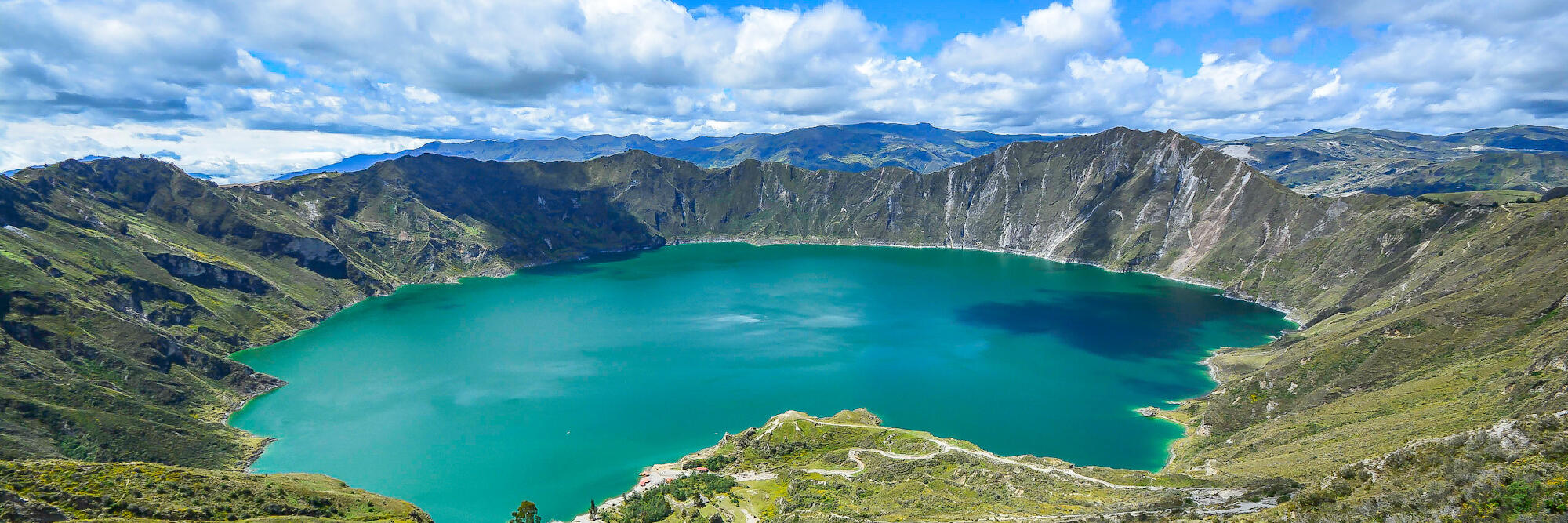Edd and Cynthia Staton are widely renowned experts on retiring abroad and expat living. They have appeared on network television, written hundreds of articles for national and international publications, and are regularly featured on major media outlets including ABC News, CBS News, CNBC, Forbes and USA Today.
Edd and Cynthia are authors of three Amazon best-selling books and creators of 'Retirement Reimagined!', a course providing comprehensive, step-by-step guidance on how to successfully retire in another country. Check out their website and blog, Edd and Cynthia, and be sure to follow them on Twitter.
For more on expat life, read our essential guide, Moving to Ecuador.
About Edd and Cynthia
Q: Where are you originally from?
A: Edd – Atlanta, Georgia. Cynthia – Charlotte, North Carolina
Q: Where are you currently living?
A: Cuenca, Ecuador
Q: When did you move here?
A: May 2010
Q: Is this your first expat experience?
A: Yes
Q: Did you move here alone or with a spouse/family?
A: Together
Q: Why did you move; what do you do?
A: We were wiped out by the Great Recession in 2008. We both lost our jobs, our home lost two thirds of its value almost overnight and our investments were in freefall. Moving abroad to a lower cost of living was our outside-the-box solution.
Living in Cuenca
Q: What do you enjoy most about Cuenca? How would you rate the quality of life compared to your home country?
A: The year-round spring weather and friendly people. Since we live on our social security benefits our quality of life is exponentially better than it would be in the States.
Q: Any negative experiences? What do you miss most about home?
A: No. We return to the States several times a year to visit our family (which includes four grandchildren) so we have the best of both worlds.
Q: What are the biggest adjustments you had to make when settling into expat life here? Did you experience any particular elements of culture shock?
A: Probably the most difficult adjustment for North Americans anywhere in Latin America is the 'mañana culture'. Family and personal time trump professional obligations. Appointments are suggestions. It takes a while to go with the flow.
Q: What’s the cost of living compared to home? Is there anything particularly expensive or particularly cheap in Ecuador?
A: Our standard of living in Ecuador would cost at least three or four times as much in the States. We live in a two-storey penthouse apartment, eat out whenever we want, have a weekly housekeeper, and enjoy spa treatments plus gym and yoga studio memberships for less than USD 2,000 per month. Imported goods are more expensive but so what when a taxi ride, for example, costs USD 1.50 to 2.00?
Q: How would you rate the public transport in Cuenca? What is your most memorable experience of using Cuenca’s transport system?
A: Old smog-belching buses have recently been replaced with modern fuel-efficient models. A long-delayed tram line is officially in operation in August 2020. Public transport here is dependable and cheap.
Q: How would you rate the healthcare in Cuenca? Have you had any particularly good/bad experiences with regards to doctors and hospitals? Are there any hospitals you would recommend?
A: Healthcare is world-class in the three major cities of Quito, Guayaquil and Cuenca. As in most places, the further you move from metropolitan areas the lower the quality of care. We belong to Ecuador’s national healthcare system. We have 100 percent coverage with no deductibles nor restrictions for age or pre-existing conditions. Our combined monthly premium is USD 83.
Q: What are the biggest safety issues facing expats living in Cuenca or Ecuador? Are there any areas expats should avoid?
A: Crime happens everywhere but overall Cuenca is a very tranquil city where citizens do not live in fear. Expats who don’t demonstrate basic common sense like wearing expensive jewellery or openly carrying fancy phones, computers and cameras are the ones most likely to be victims of theft.
Q: How do you rate the standard of housing in Cuenca? What different options are available for expats?
A: Any type of housing option and a wide range of price and quality is available in Cuenca – house, apartment or condo.
Q: Any areas or suburbs you’d recommend for expats to live in?
A: Most expats live in an area commonly known as ‘Gringolandia’ in the western part of the city. Why? Many modern high-rise buildings with security. Other popular areas are Primero de Mayo and Puerta del Sol. Outside the city, expats gravitate to Challuabamba, Paute, and Yunguilla.
Meeting people and making friends
Q: How tolerant are the locals of foreigners? Is there obvious discrimination against any particular groups? Have you ever experienced discrimination in Cuenca?
A: Extremely tolerant. There is a definite class system in Latin America but it’s an accepted part of the culture with no animosity or open hostility. Expats are warmly welcomed here regardless of race, gender or sexual preference.
Q: Was meeting people and making friends easy? How did you go about meeting new people?
A: Extremely easy. We were among the first big influx of expats in 2010 and we met up at a couple of bars for weekly get-togethers. The expat population of Cuenca has now grown to the extent that there are many special interest groups from playing cards to birdwatching to writing, painting, theatre and fishing.
Q: Have you made friends with locals or do you mix mainly with other expats? What advice would you give to new expats looking to make friends with the locals?
A: We have both local and expat friends, but our Spanish is not fluent so our local friends are bilingual. Advice to newbies? Just meet one local – they’ll introduce you to others!
Working in Cuenca
Q: Was getting a work permit or visa a relatively easy process? Did you tackle the visa process yourself, or did you enlist the services of an immigration consultant?
A: Getting a visa is not a DIY project. Rules constantly change. Relationships matter. As a new expat you’ve got enough on your plate. Invest in a qualified professional to handle this one for you.
Q: What is the economic climate in Cuenca like? Do you have any tips for expats looking to find a job? Which resources did you find most useful?
A: An expat is never going to get a J-O-B here over a local. Beyond teaching English, expats seeking an income either start an online business (like us), a cottage business they can do out of their home or a full-blown brick and mortar affair.
Final thoughts
Q: Is there any advice you would like to offer new expat arrivals to your Cuenca or Ecuador?
A: Ecuador truly has something for everybody (unless you crave snow!). Beyond the low cost of living and temperate climate, there are big cities, towns and villages. Cool mountains or warm beaches. The Galapagos Islands. The Amazon jungle. Volcanoes. Cloud forests. Come with your glass half full. Or overflowing! And enjoy all the wonderful treasures Ecuador offers you.
►Interviewed July 2020



